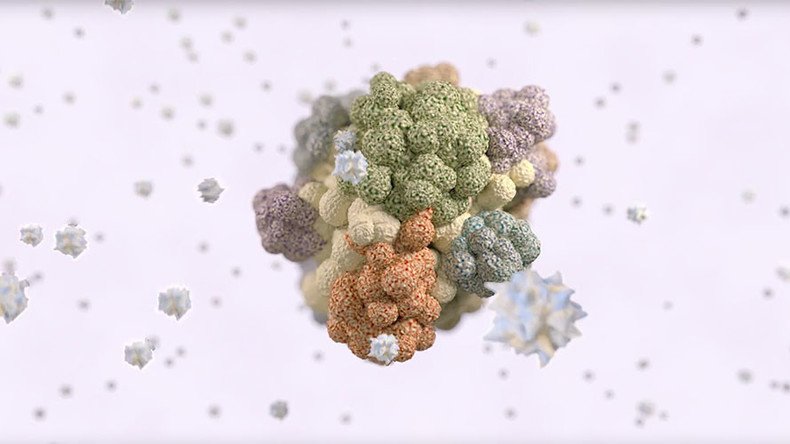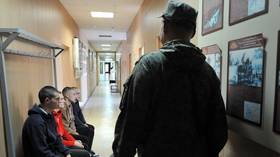Targeting cancer’s ‘Achilles heel’ could revolutionize treatment, scientists claim (VIDEO)

British scientists have found a ground-breaking technique to attack the ‘Achilles heel’ of cancerous cells, potentially revolutionizing the way the disease is tackled.
The scientists from University College London (UCL) have identified a new approach using the body’s own immune system to wipe out cancer cells.
They have discovered rare immune cells which “could form a fearsome cancer fighting force,” according to a video released by Cancer Research UK.
These rare T-cells have since been isolated by scientists working on ways to activate their cancer-fighting capabilities.
The landmark breakthrough aims to harness the patient’s own immune system to create individualized cancer treatments.
“The research fills key gaps in our knowledge about the effects of the immune system on tumors. This gives us hope of developing better treatments for some of the cancers we have previously found hardest to treat,” said Professor Peter Johnson from Cancer Research UK.
The rapid mutation of tumors has previously made it difficult for scientists to use the body’s own immune system as treatment, but this new research has potentially found the solution by identifying the tumor’s origin.
“What we’ve found for the first time is that tumors essentially sow the seeds of their own destruction. And that within tumors, there are immune cells that recognize those flags which are present in every tumor cell,” said Professor Charles Swanton, co-author from the UCL Cancer Institute.
The research promises to be most effective on fast-mutating cancers such as lung cancer. These cancer types have previously been harder to cure, but their rapidly changing nature is now being used against them.
“The body’s immune system acts as the police trying to tackle cancer, the criminals,” said co-author of the study Dr Sergio Quezada.
“Our research shows that instead of aimlessly chasing crimes in different neighborhoods, we can give the police the information they need to get to the kingpin at the root of all organized crime – or the weak spot in a patient’s tumor – to wipe out the problem for good,” said Dr Quezada.
The authors of the report have warned the treatment will be costly, however.
“This is not going to be cheap. But cancer care is already incredibly expensive,” said Prof. Swanton.
Approximately 160,000 people die of cancer in the UK every year, with lung cancer contributing to 13 percent of all new cases in 2012.
The new treatment is still in the early stages of research but Professor Swanton said: “I will be disappointed if we haven’t treated a patient [in a trial] within two years.”













